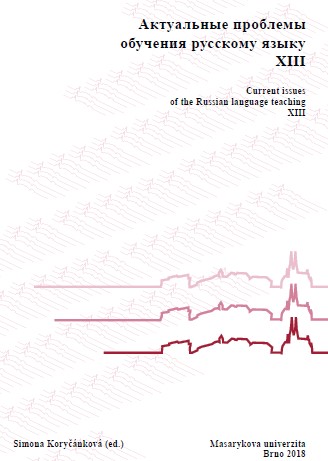СЮЖЕТ ПЕРЕСЕЛЕНИЯ НА ЗЕМЛЮ В ЛИТЕРАТУРЕ
ПЕРВОЙ ВОЛНЫ РУССКОЙ ЭМИГРАЦИИ
FARMSTEADING STORY LINE IN WHITE ÉMIGRE LITERATURE
Author(s): Marina Albertovna Khatyamova
Subject(s): Comparative Study of Literature, Russian Literature, Migration Studies, Theory of Literature
Published by: Masarykova univerzita nakladatelství
Keywords: White émigré literature; works of Mikhail Osorgin; works of Nina Berberova;
Summary/Abstract: The White émigrés writers were concerned with mission to conserve the national culture saw a tragedy of their generation in being isolated from their native land. One of the ways to arrange their Dasein was a Nativist idea of redemption through being closer to land. Mikhail Osorgin and Nina Berberova pertained to different generations of the émigré writers and gave their own variants of the in his cycles of short stories titled Memoirs from a Vegetable Garden and Dweller’s Letters, included in Incidents in the Green World collection (1938), and in his novella A Free Mason (1937), Osorgin, creates his ontological utopia of living in a small cabin. Moreover, he implements it in a life-as-a-work-of-art approach, by moving to a real cabin in Sainte-Geneviève-des-Bois, near Paris and tending to his vegetable plot and garden together with his wife. Existence of both the author and his character, Yegor Tetekhin, comply with the masonic ideal: an eccentric gardener and bibliophile arranges his spiritual existence close to nature, a “cultural home” as an alternative to foreign and destructive forces of civilization. Nina Berberova’s novel The Last Ones and the First Ones (1929), addresses life of ordinary Russians in France, their arrangements for the here-and-now life on land as an opposition to a utopia of return to Russia. The author creates her own myth of saving the unnoticed generation of the Russian emigration and then follows it herself: she moves to the countryside and starts a farmstead. Similarly, Berberova’s characters save themselves from meaninglessness of existence by absorbing themselves in collective agricultural work somewhere in Provence. Family values and domestication of alien space allow the émigrés to gain “aerial roots”, which the author understands in a spiritual way: keeping distinctive internal national identity will allow reconstructing their cultural motherland in the alien land.
Book: Актуальные проблемы обучения русскому языку XIII
- Page Range: 497-504
- Page Count: 8
- Publication Year: 2018
- Language: Russian
- Content File-PDF

